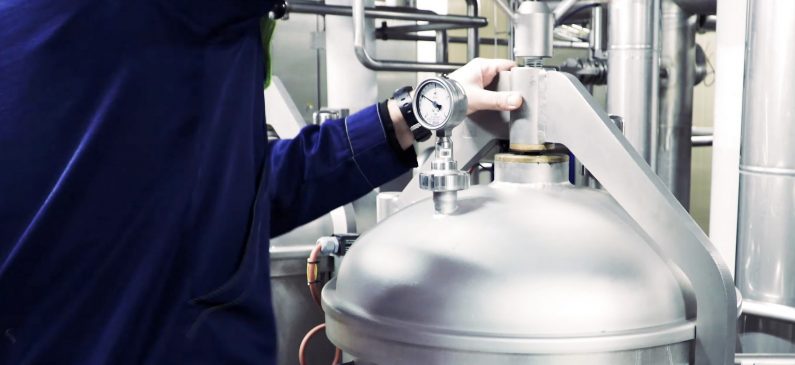It is worth investing for clean compressed air

Compressed air used in the food and beverage industry is required to be of high quality, as it is often in direct contact with the end product and production equipment. However, many factors that affect compressed air quality, are often overlooked.
In the food and beverage industry, compressed air is essential in many processes. It is used not only for powering mechanical equipment, but also, for example, for cutting, drying and cooling. Compressed air quality is important because it is often in direct contact with raw materials, production equipment, finished products and packaging materials.
– High-quality compressed air is a commodity whose importance is often thought of only when it does not exist. Impure compressed air can have far-reaching consequences, such as the loss of production efficiency and reliability, product contamination and the consequent harm to consumers, and the consequent legal consequences, and ultimately, damage to the company’s brand. Investing in high-quality compressed air generates significant savings over time, says Mark White, compressed air after-treatment expert at Parker Hannifin.
– Compressed air is often assessed only on the basis of economic and production criteria. At the same time, quality and safety considerations are often left behind, White continues. Moist and poorly cleaned compressed air provides an ideal breeding ground for microbes growing inside the system. The single most important indicator of compressed air quality is the dew point.
– The right dew point prevents microbial growth, and an effective filter reduces the amount of microbes to a better level than the ambient air. The dew point is easy to measure and the measured value can be easily combined with air quality monitoring systems, White says.
Contaminants are also transferred to the compressed air from the outside. Oil is one such contaminant that floats as particles in the ambient air and condenses in compressed air. In the food and beverage industry, special attention is paid to hygiene aspects, especially within the manufacturing and delivery processes. At the same time, however, the hygiene criteria for the production equipment itself are often overlooked.
– Proper testing of compressed air is often difficult and costly for the company itself, so it is worth utilizing the expertise of professionals in the equipment purchases and maintenance. For example, Parker products are third-party tested and reach the highest level in ISO 8573-1 classification.
IT IS ESSENTIAL to pay attention to all those parts of the system where contaminants can occur. Parker equipment can remove all ten contaminants in compressed air.
Sarlin’s own control and monitoring system Sarlin Balance ensures the smooth operation of the compressed air system. Sarlin Balance Smart Management Solution enables compressed air system air quality monitoring, reporting and control. It saves costs, improves the reliability of the compressed air system and facilitates the work of maintenance personnel. Sarlin has a suitable version of the control systems for all applications, and compressed air control can also be acquired as a service from Sarlin.